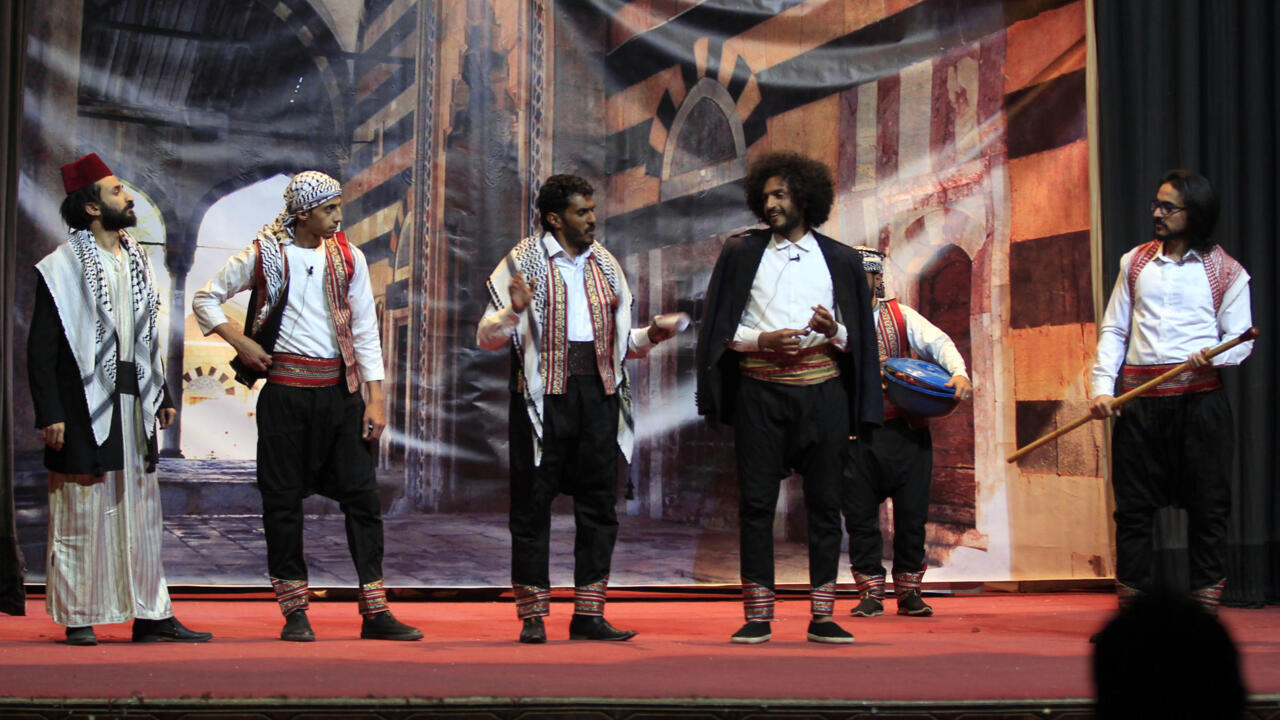Dozens of Yemeni spectators were able to laugh during a performance.
They converged on the cultural center of the capital Sana'a to attend the three dates in December of "Yemeni Film", a comedy play on the difficulties of local artists in the current context.
It tells the story of young people wishing to make a film.
But they face many obstacles, starting with violence, airstrikes, lack of funding and lack of experienced actors.
To avoid offending political sensibilities and any reprisals in a city in the hands of the Houthi rebels, its authors have used the artifice of comedy to depict their ordeal.
And at the same time they offered a rare moment of relaxation in this country in the grip of what the United Nations has qualified as the worst ongoing humanitarian crisis in the world, because of the conflict that has raged since 2014. The situation has not is only getting worse with the coronavirus pandemic.
Despite these grim circumstances, the seats were all occupied.
Dozens of spectators laughed, applauded, whistled wildly but without a protective mask against coronavirus or physical distancing.
"As artists in difficulty, we cannot provide food aid or stop the ongoing conflict," said Mohammed Khaled, director of the play.
"All we can do is provide entertainment for people to get them out of their current doldrums and an artistic creation they can enjoy," added the filmmaker.
Tens of thousands of people have been killed in Yemen since the start, in 2015, of military intervention by a Saudi-led coalition to support the government after the Houthi rebels took control of Sanaa. last year.
VIDEO: 🇾🇪 Hoping to provide comic relief to an embattled population, performers in # Yemen's capital Sanaa put on a play called "Yemeni Film", showcasing the country's hardships.
"We cannot stop the ongoing conflict, all we can do is offer people entertainment," the director said pic.twitter.com/2ljHRLCTw8
- AFP News Agency (@AFP) December 29, 2020
Fight to develop a film industry
Everything has been affected by the conflict, lamented Mohammed Khaled, adding that the art scene was no exception.
"This piece is about me, other artists and filmmakers like me who are struggling to develop a film industry," he continues.
"The biggest problem (...) is the lack of cinemas".
The directors' works "are produced and posted on the Internet so there is no financial return, which compromises the ability to support the industry," he adds.
Sana'a, whose old town is one of Yemen's four UNESCO World Heritage sites, has been largely spared the violence of the war.
The Houthi authorities, however, have imposed strict rules on dress, separation between men and women and entertainment.
Yemeni society has always been conservative, but it traditionally reserved space for personal freedom, musical culture and recreation.
Ahmed Helmy, one of the actors in the play, was optimistic despite the circumstances.
"Our infrastructure is destroyed," he said.
"As actors and filmmakers, we sorely lack an appropriate environment for film and theater."
Changing the image of Yemen
For Ayach Soubai, a resident of Sana'a, these creations showcase Yemen's beauty and talents and are a departure from the usual headlines about bombings, famine or epidemics.
"This is what we young people in the country are missing and we are trying to achieve this by using social media and following Yemeni content creators on YouTube and other platforms but it is not enough, ”he regrets.
Several films produced by Yemenis have attracted attention.
"Karama Has No Walls", a short documentary by Sara Ichaq on the protests in Sana'a in 2011, was nominated for an Oscar in 2014.
With AFP
The summary of the week
France 24 invites you to come back to the news that marked the week
I subscribe
Take international news everywhere with you!
Download the France 24 application
google-play-badge_FR

